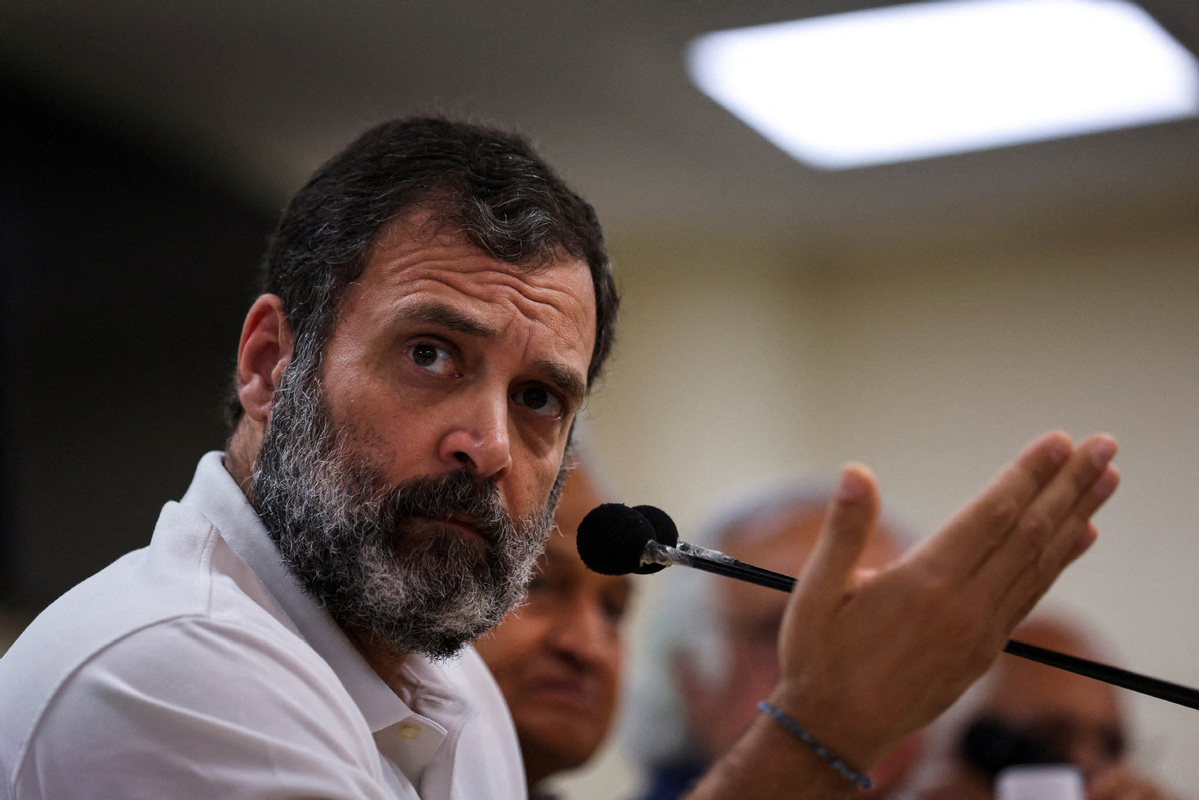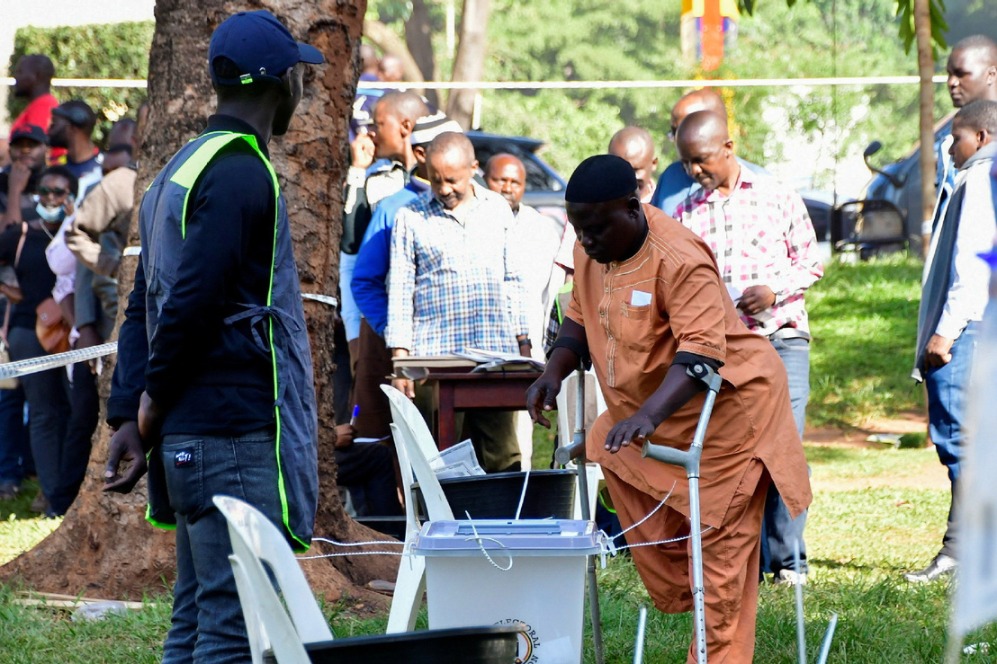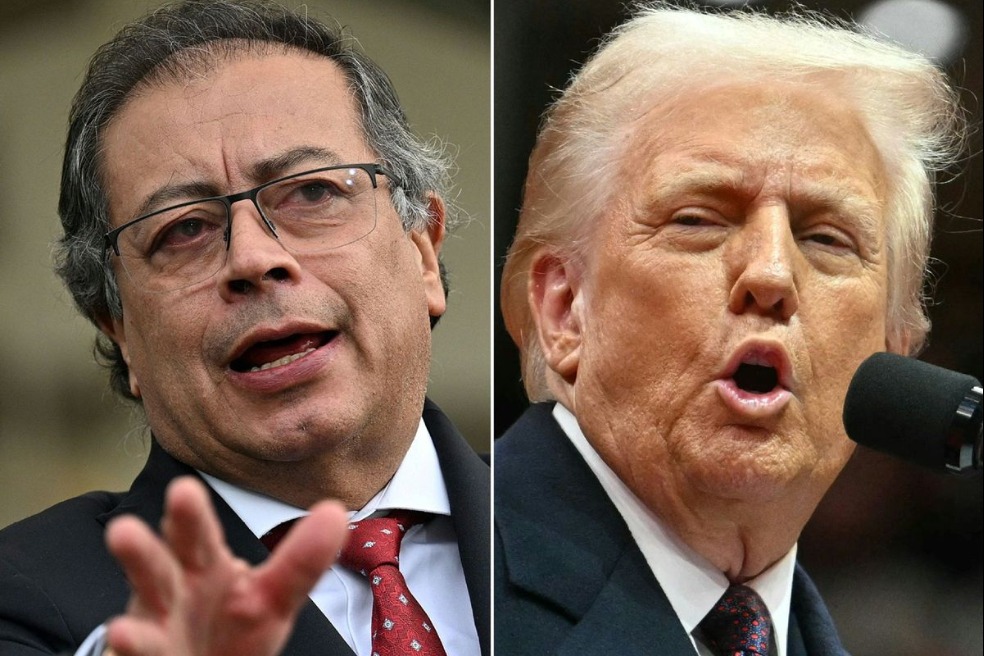Jail sentence of Congress party leader Gandhi leaves India in uproar


Indian politics has been thrown into fresh turmoil after main opposition leader Rahul Gandhi was banned from parliament and sentenced to jail upon being convicted for defamation. Fellow Congress party members protested in Delhi as Gandhi subsequently appealed the verdict, but analysts doubted if he would be successful.
Congress President Mallikarjun Kharge on April 5 accused the federal government of double standards, stating that while it disqualified Gandhi with lightning speed, a Gujarat MP from the ruling BJP who was convicted in a criminal case did not face the same action.
Gandhi, leader of the Congress party, was found guilty on March 23 by a lower court in Surat, Gujarat state, and handed a two-year jail sentence for comments on Indian Prime Minister Narendra Modi's surname made at a 2019 political rally.
Indian parliamentary rules say a member immediately loses their seat if they are convicted of a crime and sentenced to two or more years in prison. With Indian national elections due next year, Gandhi will not be allowed to stand unless his conviction is suspended or overturned.
"Why do all these thieves have Modi as their surname? Nirav Modi, Lalit Modi, Narendra Modi," Gandhi said in that rally.
Nirav Modi is a fugitive diamond tycoon while Lalit Modi, the former Indian Premier League chief, was banned for life by the country's cricket board for corruption.
After appealing the guilty verdict on April 3, Gandhi was granted bail and another hearing was set for April 13. Congress confirmed that a further hearing was scheduled for May 3.
"My name is Gandhi and Gandhi does not offer an apology to anyone," the unfazed Congress leader said after the verdict, referring to family members, including his great grandfather Jawaharlal Nehru who was India's first prime minister.
The defamation case was filed by Purnesh Modi, a state-level lawmaker for the BJP in the prime minister's home state of Gujarat. He alleged Gandhi's comments had "defamed the entire Modi community".
Sangit Kumar Ragi, a professor in the department of political science at the University of Delhi, said it was a "normal judicial process". The court asked Gandhi to apologize after finding he had defamed a community, Ragi said, but he refused. "So the punishment was meted out to him," Ragi added.
Supporters of Congress and various regional parties gathered across New Delhi, including in front of the iconic Red Fort to protest against Gandhi's disqualification.
They accused the governing Bharatiya Janata Party – and its leader, Prime Minister Modi – of a political vendetta. Congress announced a month of protests across the country.
Delhi police allegedly assaulted hundreds of political workers and activists protesting Gandhi's expulsion, with hundreds arrested across the capital.
"We don't even have a right to protest here now?" asked a Congress party worker at Jantar Mantar, a protest site in New Delhi. "Is this not our country? Can we not ask questions from the government?" asked protesters at the Red Fort.
Gandhi's case has seen national uproar and unanimous protest from a majority of opposition parties.
At least 14 political parties filed a case with the Indian Supreme Court on March 24 protesting what they claimed was the Modi administration's abuse of federal law enforcement organizations to target the opposition.
"The parliament was one platform where you felt safe. But now that is also not available to parties. It is also a rare case of conviction in a criminal defamation case when persons who were defamed did not raise a case," Kapil Sibal, a prominent lawyer and former senior Congress leader, told Indian media.
Saugata Roy, a senior Congress party leader in West Bengal, said that the parliamentary ban and hasty court judgment may be related to Gandhi's questioning of the government.
Gandhi and other opposition leaders had demanded an investigation into reports of alleged stock-price manipulation and fraud by Indian billionaire Gautam Adani's Adani Group.
"I think the government has sent out a signal to all opposition parties and that it can go to any extent to destroy and disable them," said Nepal Mahata, a senior Congress leader from West Bengal.
"Rahul is fighting back. He is filing an appeal and there is lot of sympathy for him in the country. I hope he will be able to fight back," Congress' Roy said.
However, Anurag Deep, a professor at the Indian Law Institute in New Delhi and an expert on the constitution, was among the analysts to doubt that Gandhi's appeal could be successful.
The writer is a freelance journalist for China Daily.

































